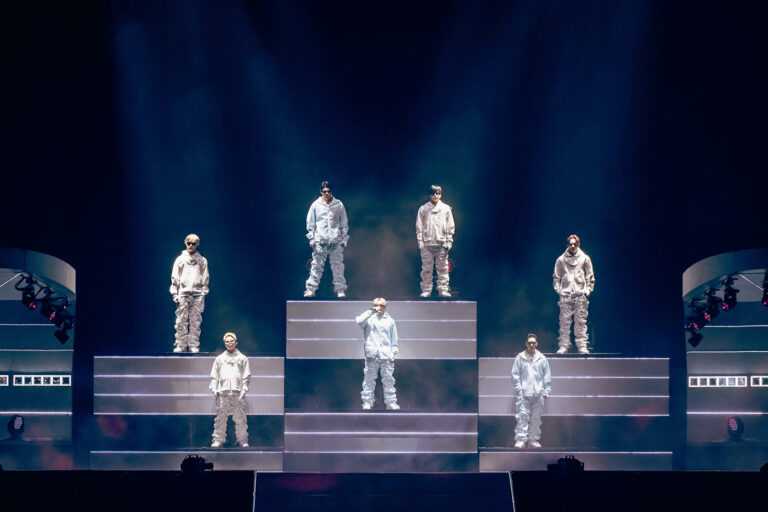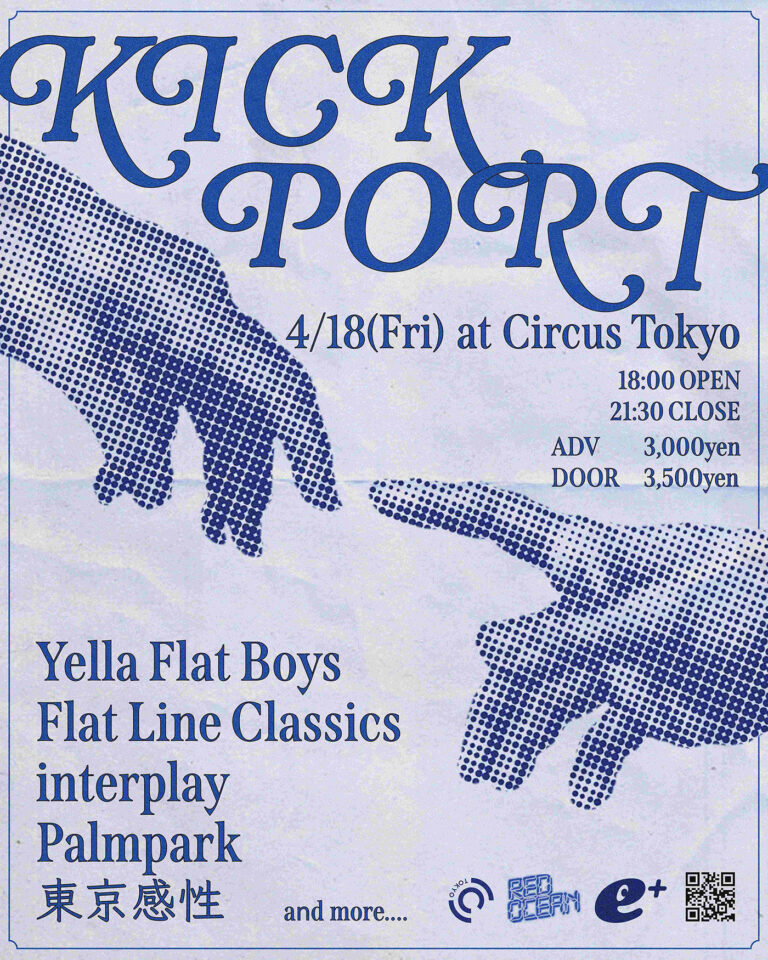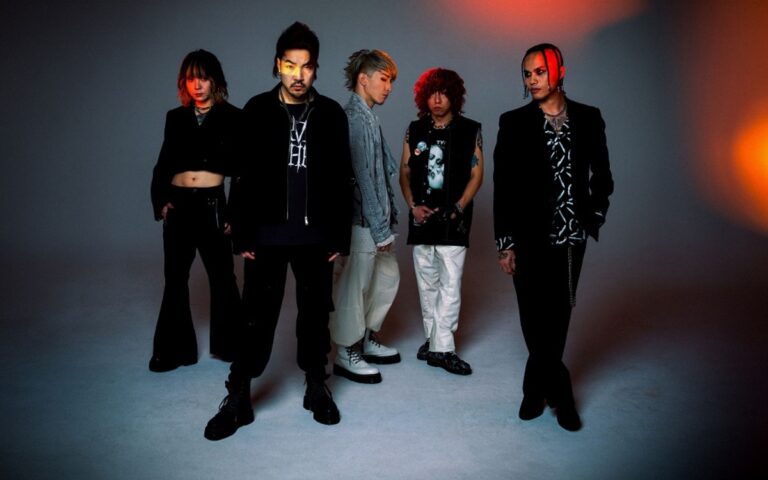■ “If television is a tool for conveying peace, then I think that letting people experience this pain in a real way will ultimately lead to peace.” (Sho Sakurai)
With the 79th anniversary of the end of the war approaching, “Tetsuko’s Room: Never Forgetting the War – Sakurai Sho Listens to Kuroyanagi Tetsuko’s Memories” will be broadcast on August 11th from 1:55pm (excluding some areas).
It’s been 80 years since the end of the war. As time passes, the number of people who remember those days is decreasing, and there are fewer opportunities to hear about the experiences and memories of the war. Isn’t it time to pass on those memories and records? With this mission in mind, a certain project has quietly begun.
The project was driven by Arashi member Sho Sakurai. The project, which started at Sakurai’s strong desire, has finally come to fruition as a TV program.
■ Kuroyanagi was in tears, Sakurai was speechless… The brutal “memories of war” discussed on “Tetsuko’s Room”
The program was inspired by a letter that Sakurai wrote to Tetsuko Kuroyanagi.
“I would like to hear from Tetsuko about the early days of television. I would also like to hear about her memories of the war.” Taking Sakurai’s thoughts into account, Kuroyanagi and Sakurai have had several conversations over the course of about a year.
Among them, what made the strongest impression on Sakurai were the many “war memories” that Kuroyanagi had talked about on “Tetsuko’s Room,” a show she has hosted for many years. This program was made possible in order to look back on those “war memories” and pass them on to future generations.
In “Tetsuko’s Room: Never Forgetting the War – Sakurai Sho Asks Kuroyanagi Tetsuko’s Memories,” Sakurai asks Kuroyanagi about her “war memories,” and the show proceeds with the program. The show looks back on those “memories” and records, along with precious footage of Ikebe Ryo, Awaya Noriko, Minami Haruo, and others who have spoken on “Tetsuko’s Room” so far. Sakurai is left speechless by the footage, which can only be seen on “Tetsuko’s Room,” which has such a vast archive, including Minami’s brutal experiences as he continues to sing about peace… Kuroyanagi, who experienced an air raid herself, is also seen in tears as she says, “The war is an unpleasant memory that I don’t want to remember.”

■Kuroyanagi was also astonished when she saw the “leaflets distributed by the US military” that Sakurai brought with him, saying, “It was the first time I’d ever seen anything like that!”
The program also features original interviews by Sakurai, who has been covering the “war” for a long time. It also highlights the activities of people of Sakurai’s generation, such as artist Senda, who continues to talk about the experiences of his late grandfather, who was detained in Siberia, and Hisataka, who is making a film about the Tsushima Maru, which carried civilians evacuated from Okinawa to Nagasaki.
Kuroyanagi was also astonished by the leaflets that Sakurai brought with him, “leaflets that the US military distributed before air raids.” He showed a look of surprise and said, “This is the first time I’ve seen this.”
“Television may bring about eternal peace” – with these words in mind, Kuroyanagi said she thinks she can help bring about peace by listening to war experiences on “Tetsuko’s Room.” After the recording, Sakurai also spoke frankly, saying, “I felt that letting people really feel this ‘pain’ may ultimately lead to peace.” He continued, “So that we never do the same thing again. I want to continue telling the story so that it becomes a thing of the past, and I hope it will become an awareness or a clue.”

TVer and ABEMA will be offering free catch-up streaming of “Tetsuko’s Room: Never Forgetting the War – Sakurai Sho Listens to Kuroyanagi Tetsuko’s Memories” after the terrestrial broadcast.
In addition, TVer will be streaming the four pre-show interviews between Tetsuko Kuroyanagi and Sho Sakurai that did not fit into the broadcast as an original work. Be sure to watch the interview that sparked this program.
■ Comment from Sho Sakurai
–I heard that the idea for this show was conceived by Sakurai-san and that it took a long time to develop. What made you want to do this project?
Sakurai:Last year (2023) on New Year’s Day, I hosted a special program on NHK entitled “70 Years of Red and White” (TV 70th Anniversary Special “Live Broadcast! Red and White Song Battle New Year Special”), and an interview with Tetsuko Kuroyanagi was aired on the program. When I watched the interview, I thought, “Tetsuko is someone who built a standard with a strong will in the early days of television.” She was someone who built television with her own beliefs, while sometimes battling various things.I wanted to ask Tetsuko about her TV appearance, but I also wanted to ask her about her own experiences with the “war” that I have been covering for many years. But I hadn’t decided where to release it, there were no plans to broadcast it, and I hadn’t even decided to make it into a book…I just decided to get started, and with the help of staff I was really close to, I got started.
–When you linked the “early days of television” to “war” and ended up with this program, was there something you were conscious of?
Sakurai:At first, I had a hypothesis in my mind that “Postwar progress = TV” and I was listening to her talk at the same time, but the more I listened and read the materials she gave me, the more I felt that “Tetsuko’s Room” was an incredible archive… (laughs). Of course, the show is full of fun and heartwarming stories, but at the same time, I learned that if you look at it from a different perspective, it is full of incredible testimonial materials, and that’s how we came to make this show happen. It’s like a dream, and it has turned out to be far beyond my imagination, and I’m overwhelmed with emotion.–This program turned out to be a success, far surpassing all your wildest dreams, but now that you’ve finished recording, what thoughts are you feeling?
Sakurai:As expected, the sight of such famous people, people who have been active on television, tearfully talking about the war had a strong impact. Even though it was something I had only read in words as “information” up until then, seeing the movement of their eyes and the strength of their words made me feel the power of the images, and I thought that images are powerful.With that in mind, the main feeling in my heart right now is “pain.” There were many painful stories to listen to, and they carried weight… But, as Tetsuko said at the end, if television is a “device to convey peace,” then I feel that letting people feel this “pain” in a real way may ultimately lead to peace.
–Could you tell us how you would like people of your age, or a little younger, to watch this program?
Sakurai:: I think that people in their 40s and 30s are from my generation, and I think they are the generation that thinks, “I wish I had heard my grandpa’s stories,” and “I wish I had listened to my grandma’s stories more.” I think that they are at an age where they are gradually changing from the time when they were playing around in their teens and twenties, and they start to think that they should have listened to old stories. So, when they watch this program, I hope that even though they may not be their real grandparents, they think, “There was a story I wanted to hear.” Moreover, I hope that they realize that this was not something they saw at a war museum, but was delivered on TV. I would also be happy if we could pass it on to the next generation.–It will be important to continue this project going forward, but what are your plans for the future, Sakurai-san?
Sakurai:: The two people I spoke to this time (Hisashi and Senda) happened to be in the same year, so I was happy and encouraged to hear about what people in my year were doing. At the same time, I felt a little embarrassed and wanted to do more myself. I’m sure there are still many people who are passing on their war memories in this way, so I strongly felt that I would like to meet more and more people of the same generation who have the same feelings, even if they are not the same age.In addition, both of them have children, and they also wanted to pass on the story to the next generation. For people living now, war is inevitably a thing of the past, and at the same time, I think it is something that must be left in the past. So that it will never happen again. I want to continue to pass on the story so that it will be a thing of the past, and I hope to continue to provide such awareness and clues.
Program Information
TV Asahi“Tetsuko’s Room: Never forgetting the war – Sakurai Sho listens to Kuroyanagi Tetsuko’s memories”
08/11 (Sun) 13:55-15:20 *Excluding some areas
TVer distribution page
https://tver.jp/episodes/epngfod60g
ABEMA distribution page
https://abema.tv/video/title/87-320
Program site
https://www.tv-asahi.co.jp/tetsuko/news/0027/


![Shingo Katori asks Ryu -chan, exclusively model for “KOGYARU”, “Ryu, that girl? Boy who was with you!” What is the answer?[Nanana]](https://tokytunes.com/wp-content/uploads/2025/02/1738497766_Shingo-Katori-asks-Ryu-chan-exclusively-model-for-KOGYARU-Ryu-768x432.jpg)














